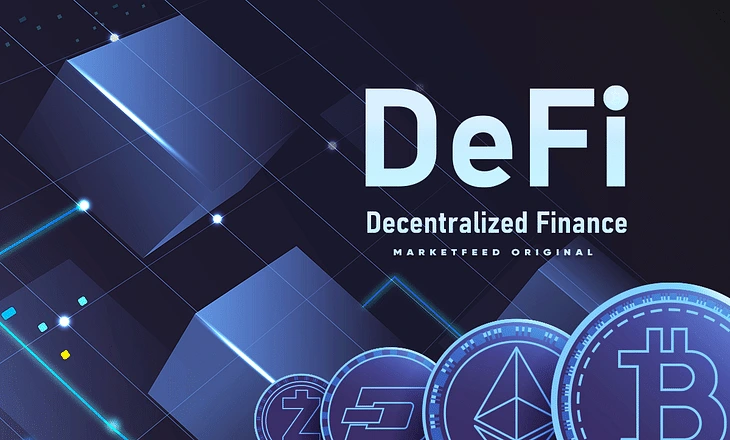How Web3 Is Quietly Shaping Your Lifestyle (Even If You’re Ignoring It)
January 13, 2025

Let’s be blunt: when you hear “Web3 lifestyle impact,” you might roll your eyes and think, great, another crypto buzzword. Fair enough. Web3 has been wrapped in enough hype, scams, and bad branding to make anyone skeptical.
But here’s the thing — like it or not, Web3 is already starting to reshape your daily life. Slowly, subtly, and sometimes without asking your permission.
And if you think this is just something for blockchain bros and Silicon Valley startups, you’re already behind.

Payments: The Web3 Lifestyle Impact That’s Sneaking Up on You
Look at how we pay for stuff. Credit cards, PayPal, Apple Pay — all easy, all trusted. But also all heavily controlled, fee-loaded, and — let’s be honest — kind of stuck in the past.


Meanwhile, Web3’s decentralized finance (DeFi) scene is throwing out the rulebook. Crypto payments, stablecoins, and blockchain-based wallets are trying to muscle their way in. It’s messy, sure — but it’s happening.
Brands are starting to quietly accept crypto. Some people are earning passive interest just by parking assets in a wallet.
This isn’t about “buying a latte with Bitcoin.” It’s about cutting out middlemen who’ve been quietly draining fees from every transaction you make.


If you think the Web3 lifestyle impact on payments won’t touch you, just wait. Sooner or later, your bank will notice — if they haven’t already.
Web3 Lifestyle Impact on Social Media: Who’s Really in Charge?
Now let’s talk social media. Right now, you’re basically renting your online presence. Your followers, your posts, your carefully curated brand? It all lives on someone else’s servers. They can delete it. They can sell your data. You just have to smile and refresh the page.
Web3 social platforms like Lens Protocol and Farcaster want to change that — radically.
Own your identity. Own your content. Move it wherever you want, whenever you want. No corporate overlords needed.


It sounds idealistic — and honestly, parts of it are. But if you think the Web3 lifestyle impact stops at money, think again.
In the future, your online identity could be yours to command… or you can keep feeding the machine and pretending you’re “building a brand.”
Your call.
NFTs and True Digital Ownership: Not Just a Fad
Yeah, yeah — NFTs have been memed to death.
Overpriced ape pictures. Celebrity cash grabs. Scam after scam. I get it.
But buried under the nonsense is a powerful, unavoidable truth: Web3 introduces the idea that digital ownership should be real.
Right now, if Spotify or Instagram or Steam pull the plug, your collections, memories, and purchases vanish. Poof. Gone.


Web3 says: not anymore. Own your music. Own your games. Own your art. Really own it — provable on a blockchain, not subject to a company’s whim.
Laugh at NFTs if you want. But the Web3 lifestyle impact is bigger than jpegs. It’s about owning your slice of the internet — and no, that’s not something you want to sleep on.
Let’s Not Kid Ourselves: Web3 Isn’t Perfect
Of course, I’m not going to sugarcoat it.
Web3 today is a hot mess in a lot of ways. Clunky apps. Bad UX. Hacks. Scams. Ridiculous gas fees. Half-baked ideas.
Mass adoption? Yeah, we’re not there yet. Maybe not even close.
(If you’ve ever tried setting up a DeFi wallet, you know exactly what I mean.)
But here’s the kicker: the Web3 lifestyle impact is already happening despite all this.
Payments, social media, identity — it’s creeping in at the edges.
And by the time everything gets polished and mainstream-ready? You’ll wish you had paid a little more attention.

Final Thoughts: Pretend It’s Not Happening — at Your Own Risk
You can roll your eyes at Web3. You can call it a fad. You can wish it away.
But the truth is, Web3 is already weaving itself into payments, ownership, and digital life — quietly but inevitably.
Maybe you don’t need to buy a domain on ENS tomorrow or mint your own NFT. But at least know what’s coming. Learn the basics.
Because one day soon, when your favorite app quietly shifts onto a blockchain backend… you’ll either be ready — or you’ll be scrambling to catch up.
The Web3 lifestyle impact isn’t a theory anymore. It’s reality. And it’s not waiting for permission.
Relevant Link : Here

